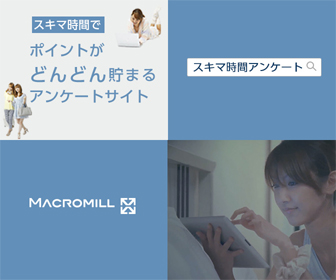🪙 The Real Meaning of Japanese Shareholder Benefits
Why “unfair” isn’t the right word
Intro: What Foreign Investors Often Miss
From a foreign investor’s perspective, Japan’s shareholder benefits system—where companies send gifts or coupons to individual shareholders—can seem unfair.
After all, institutional investors and overseas shareholders often don’t receive them.
But if you look at it from inside Japan’s corporate and social context, this practice isn’t irrational at all.
In fact, it’s a clever and culturally rooted system that helps stabilize stock prices, strengthen customer loyalty, and even promote corporate social responsibility.
1. How It All Started
When Japan’s stock market was expanding, companies needed to have a minimum number of individual shareholders to stay listed—over a thousand at one point.
That was tough for smaller firms, so they started offering small gifts to attract retail investors.
What began as a way to “meet the listing quota” evolved into a long-standing system.
Even though the rule has since been relaxed (now only about 800 shareholders are required), the practice remains.
Why? Because it works.
Individual investors who receive benefits tend to hold their shares longer—waiting for their next gift instead of selling on short-term movements.
This helps keep the stock price stable, adding what some Japanese investors jokingly call a “geta,” or small lift, under the share price.
Companies also encourage long-term holding by offering larger rewards for multi-year shareholders.
In short: shareholder perks reduce volatility, create loyal investors, and lower the psychological pressure to trade.
2. Shareholders = Customers
This concept shines especially in Japan’s domestic-focused industries.
For many Japanese companies, shareholders are not just investors—they’re customers.
Giving products or vouchers through shareholder benefits lets people experience the brand directly.
Take Morinaga Milk Industry, for example.
It’s known for dairy, yet one of its shareholder gifts is tofu.
That raises eyebrows—“Why tofu?”—and leads curious shareholders to discover the company’s sustainability cycle:
soy pulp (okara) from tofu production is repurposed into cattle feed, which in turn supports the company’s dairy business.
Through this, shareholders learn about the firm’s environmental efforts—something that would cost millions to advertise otherwise.
It’s not just generosity; it’s brilliant marketing.
3. The NTT Example: Turning Shareholders into Promoters
NTT recently made headlines with its massive 25-for-1 stock split, multiplying its individual shareholders.
Then came exclusive shareholder campaigns for its electricity, internet, and mobile services.
These aren’t random giveaways—they’re laser-targeted marketing efforts toward affluent, trustworthy customers who already own NTT stock.
Instead of spending millions on television ads, NTT builds customer trust and engagement directly through its shareholders.
It’s arguably one of the most cost-effective advertising strategies in Japan today.
4. When Benefits Become Donations
Another interesting trend is how shareholder benefits are being donated.
Institutional investors or securities firms that can’t accept the gifts themselves often create funds or partnerships with nonprofits.
For example, some brokers collect rice, snacks, and vouchers from shareholder benefits and deliver them to community food banks or children’s cafeterias.
It’s not only a form of charity—it’s social branding.
When a child from a low-income family receives sweets from Meiji Holdings or other companies through these donations,
they experience products they might never have bought otherwise.
That memory can shape brand loyalty in the future: “I remember this snack—it made me happy.”
A small act of kindness becomes a long-term customer connection.
5. Beyond Japan: Should the World Adopt It?
So, is Japan’s shareholder benefit system “unfair”?
Perhaps. But it’s also effective.
It transforms investors into advocates, integrates marketing with sustainability,
and fosters a sense of connection that pure dividends can’t buy.
In a world where shareholder capitalism often feels cold and transactional,
Japan’s system offers a softer, relationship-based alternative—
one that merges profit, community, and trust.
Conclusion: Japan’s Soft Power
Shareholder benefits aren’t a quirk of Japan—they’re part of its soft power.
They reflect a society that values relationships, gratitude, and long-term thinking.
For global investors, the lesson is clear:
sometimes the most “inefficient” system on paper is the one that builds the strongest bonds in practice.
Related Companies :
- NTT (Nippon Telegraph and Telephone Corporation) – shareholder campaigns and stock split strategy
- Morinaga Milk Industry – tofu and sustainability-based shareholder gifts
Disclaimer
This article reflects personal views and analysis for informational purposes only. It should not be considered investment advice. Readers should conduct their own research or consult with licensed professionals before making investment decisions.




